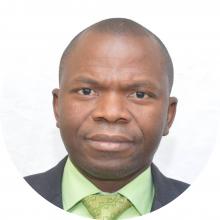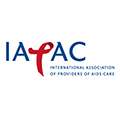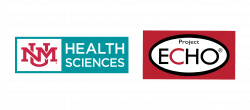The presentation videos and slides for speakers’ lectures are made available, provided that they have granted us permission to do so


Approaches to Combat COVID-19 in Low- and Middle-Income Countries Workshop 2022
Related Enduring Materials
Day 1 - Thursday, 3 November 2022
Day 2 - Friday, 4 November 2022
What's New
-
Registrations of Approaches to Combat COVID-19 in Low- and Middle-Income Countries Workshop 2023 is now open. Registration fees are waived for HCPs and Academia Representatives. Please visit the website here for more information and click here to register to the 2023 edition.
-
To stay updated on the relevant developments, make sure you are signed up for our newsletter.
About this Program
The Approaches to Combat COVID-19 in Low- and Middle-Income Countries Workshop 2022 successfully took place on 3 - 4 November 2022 as a virtual program.
The COVID-19 pandemic has had a devastating toll worldwide. In particular, large surges in COVID-19 caseloads have been associated with rapidly escalating demands on hospital staff, beds, supplies, and medical equipment availability. It has been suggested that a portion of COVID-19 deaths may be attributed to hospitals strained by surging caseloads. This can have far-reaching implications for hospital preparedness and for public health authorities on how to allocate resources and improve the clinical management of COVID-19 patients, and it may be even more relevant for low- and middle-income countries (LMICs). Indeed, LMICs face additional challenges, considering their health infrastructures and resources, the difficulty to implement proper social distancing, their challenges with access to vaccines and to diagnostic tests.
As a matter of fact, COVID-19 has created significant challenges for health care systems and community in LMICs. The appropriate diagnosis and clinical management of patients are of utmost importance to avoid complications and poor outcomes. However, the lack of diagnostic tests and some of the basics, such as mechanical ventilation and oxygen supplies in ICUs, but also personal protective equipment for the health care provider in LMICs are staggering. Furthermore, most LMICs still face challenges in the access and rolling-out of COVID-19 vaccines to their populations. In fact, only 0.8 % of vaccines have been administered in low-income countries. Moreover, many of the COVID-19 therapeutics that has been studied in resource-rich setting, are not accessible for patients in LMICs.
Therefore, there is a huge need for knowledge exchange discussing how to handle COVID-19 surges, how to prepare these countries to receive COVID-19 vaccines, diagnostic tests, and other basics in Low- and Middle-income Countries. The Approaches to combat COVID-19 in Low- and Middle-income Countries (LMICs) workshop focuses on the regional specific challenges in the clinical management of COVID-19, public health, prevention strategies, and vaccines rollout. The first edition of the workshop was attended by 402 participants from 90 countries. 97% of them agreed that this program increased their knowledge of regional challenges that LMICs countries face combatting the COVID-19 pandemic, and 92% of attendees indicated that they would be able to implement the gained knowledge highlighting the impact of this program.
Program Chair
General Information
- Public health officials;
- Researchers; and
- Community representatives.
- Clinical management of COVID-19 in resource limited settings;
- Diagnostic challenges;
- Vaccine challenges in LMICs;
- Treatments for inpatients and outpatients;
- Public health and surveillance.
Our goal is to gather healthcare professionals, public health experts, policymakers, and community representatives from LMICs, and provide a platform to discuss the clinical management, public health challenges and lessons learned from previous waves of infections in LMICs. This will be done in the unique context of the COVID 19 pandemic in Low- and Middle-income countries, considering regional differences in access to medications, health system capacity, and public measures.
- Define diagnostic challenges in LIMCs and their impact on regional/international travel;
- Identify accessible therapeutic options and relevant challenges for COVID-19 outpatients and inpatients in LMICs;
- Apply the clinical management and management of complications resulting from COVID-19 infections;
- Summarize challenges associated with COVID-19 vaccination in LMICs; and
- Distinguish which surveillance and public health measures are effective in LMICs.
Practical Information
We trust that the following information will assist you in organizing your participation for the Workshop on Approaches to Combat COVID-19 in Low- and Middle-income Countries.
Translation will not be provided.
Any individual who feels discriminated against, harassed, disrespected, or marginalized is encouraged to report the incident(s) to VE and AME via info@amededu.com or to one of our on-site personnel.
Any participant who is found to have exhibited any inappropriate conduct or behavior against others may be removed from the program.

Support Our Initiative
Financial backing helps us deliver an impactful meeting experience to the benefit of healthcare professionals and community representatives involved in COVID-19.
This collaboration plays a vital role in both the organizational as well as scientific success of the program.
To show your commitment to the cause and get in touch with us for a tailored support package, please contact Ms. Federica Ressa at federica@amededu.com or call +31 30 230 7140.
Benefits of Support
By supporting this program, we can offer the following advantages for your company.* Please contact us for the most recent support level benefits for this program.
- Symposium opportunities
- Non-commercial interviews with company representatives
- Verbal acknowledgment during the program
- Discounted and complimentary registrations for your representatives
- Company acknowledgment on digital meeting materials including but not limited to newsletters, flyers, the streaming platform, and our website
- Digital and printed advertising opportunities
- Social media shout-outs
*Subject to the support level.
The Approaches to Combat COVID-19 in Low- and Middle-Income Countries Workshop was endorsed by the following societies and organizations:
Top-Rated Materials from Previous Editions
Use of COVID-19 Therapeutic Options Accessible in LMIC for Outpatients and Inpatients - Brenda Crabtree Ramirez, MD
Approaches to Combat COVID-19 in Low- and Middle-Income Countries 2021

























